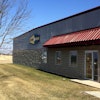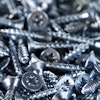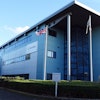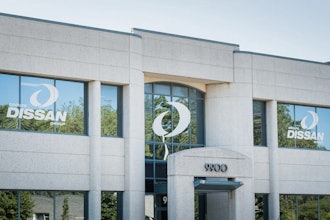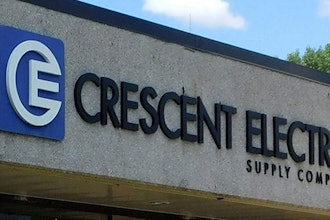SHANGHAI (AP) — U.S. Commerce Secretary Gary Locke led his first trade mission to China's financial center Tuesday, working to deliver on President Barack Obama's pledge to double U.S. exports and create 2 million jobs.
The visit to China, ahead of an annual economic dialogue, comes as both countries seek to smooth trade tensions and cultivate new business opportunities while grappling with uncertainties revived by the European financial crisis.
Locke's mission, his first since taking office, is focused on encouraging clean energy technology sales, an area of huge potential given China's need to upgrade its industries and improve energy efficiency.
On Tuesday, American Superconductor Corp. announced a new electrical components order from Sinovel Wind, China's largest wind turbine maker. Beijing-based Sinovel, ranked the world's third-largest wind turbine maker, has so far ordered US$1 billion from AMSC.
"Promoting American exports, particularly here in Asia, will create more jobs in America while improving the lives of people around the world and introducing new products and services to local communities," Locke said in Hong Kong, where the U.S. and local governments signed an agreement on promoting American wines.
Locke, U.S. Secretary of State Hillary Clinton, Treasury Secretary Timothy Geithner and U.S. Trade Representative Ron Kirk will attend the Strategic Economic Dialogue on Monday in Beijing.
The talks, a venue for thrashing out grievances on trade, currency and other policy issues, come as the Beijing and Washington mend ties after a bout of friction over various issues, including U.S. arms sales to Taiwan.
So far, Washington and Beijing have avoided a formal dispute over clean energy, emphasizing cooperation in research, though foreign companies complain of being squeezed out by Chinese efforts to nurture their own domestic industries.
Among other disputes: currency policy, trade in various goods ranging from steel to shoes, and Chinese policies favoring local companies at the expense of foreign competitors.
As the European financial crisis deepens, China appears to be pulling back from expected moves to loosen its currency's tie to the U.S. dollar, saying the euro's slide to four-year lows against the dollar is putting too heavy pressure on its own exporters.
China has kept the yuan at a rate of about 6.83 per dollar for nearly two years, seeking to cushion its exporters from the global financial crisis. Some economists reckon the yuan is undervalued by up to 40 percent against the dollar, giving Chinese exporters an unfair advantage in overseas markets.
"The current situation for exports is not optimistic and financial markets remain volatile," Commerce Ministry spokesman Yao Jian said Monday at a news briefing. He said the yuan has gained 14.5 percent against the euro in recent weeks, obliging Beijing to focus on "maintaining stability."
Yao also reiterated Beijing's complaints over U.S. export controls that it says are restricting high-valued high-tech exports
In a move some in the industry said was politically timed, a major Chinese steel firm, Anshan Steel announced plans Monday to invest $175 million in Mississippi-based U.S. Steel Development Corp. in exchange for gaining technology to use scrap to make steel using electric arc furnaces.
"This is as politically driven an investment as possibly could be," said a note by Steel Market Intelligence, a newsletter published by Michelle Applebaum Research, a Chicago-based consulting firm. It noted that China's steel exports to the U.S. had doubled in January-April from a year before.
Locke's schedule includes a visit to the U.S. pavilion at the World Expo, a six-month event showcasing urban sustainability designs and know-how under the theme "Better City, Better Life."
The success in raising U.S. corporate funding for the pavilion, underscores China's importance, especially at a time when the U.S. and European economies are still on the mend.
Locke also was visiting the Shanghai engine center of United Technologies Corp.'s jet engine manufacturer Pratt & Whitney, highlighting U.S. ambitions in China's aviation sector as the country develops its own jet aircraft.

